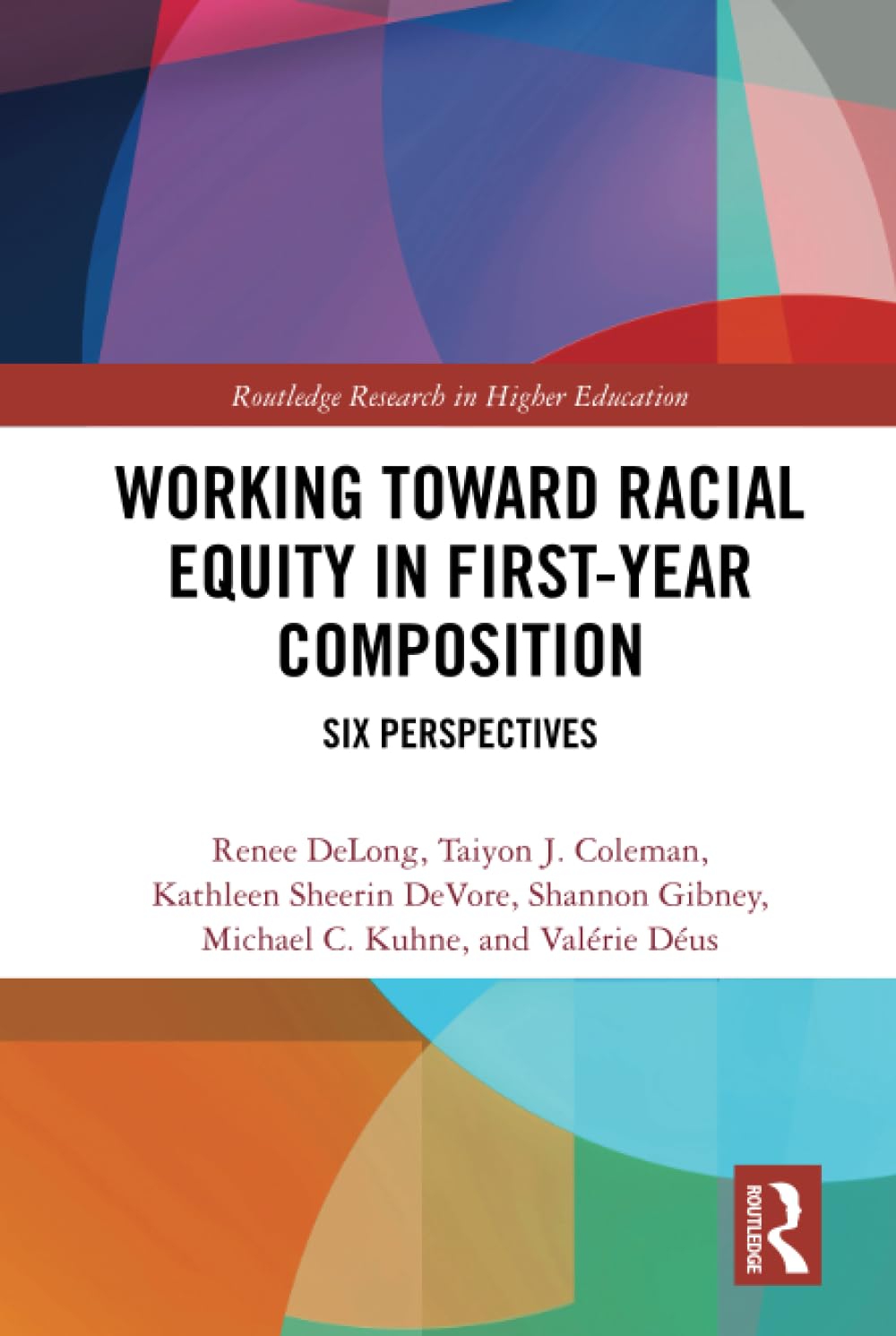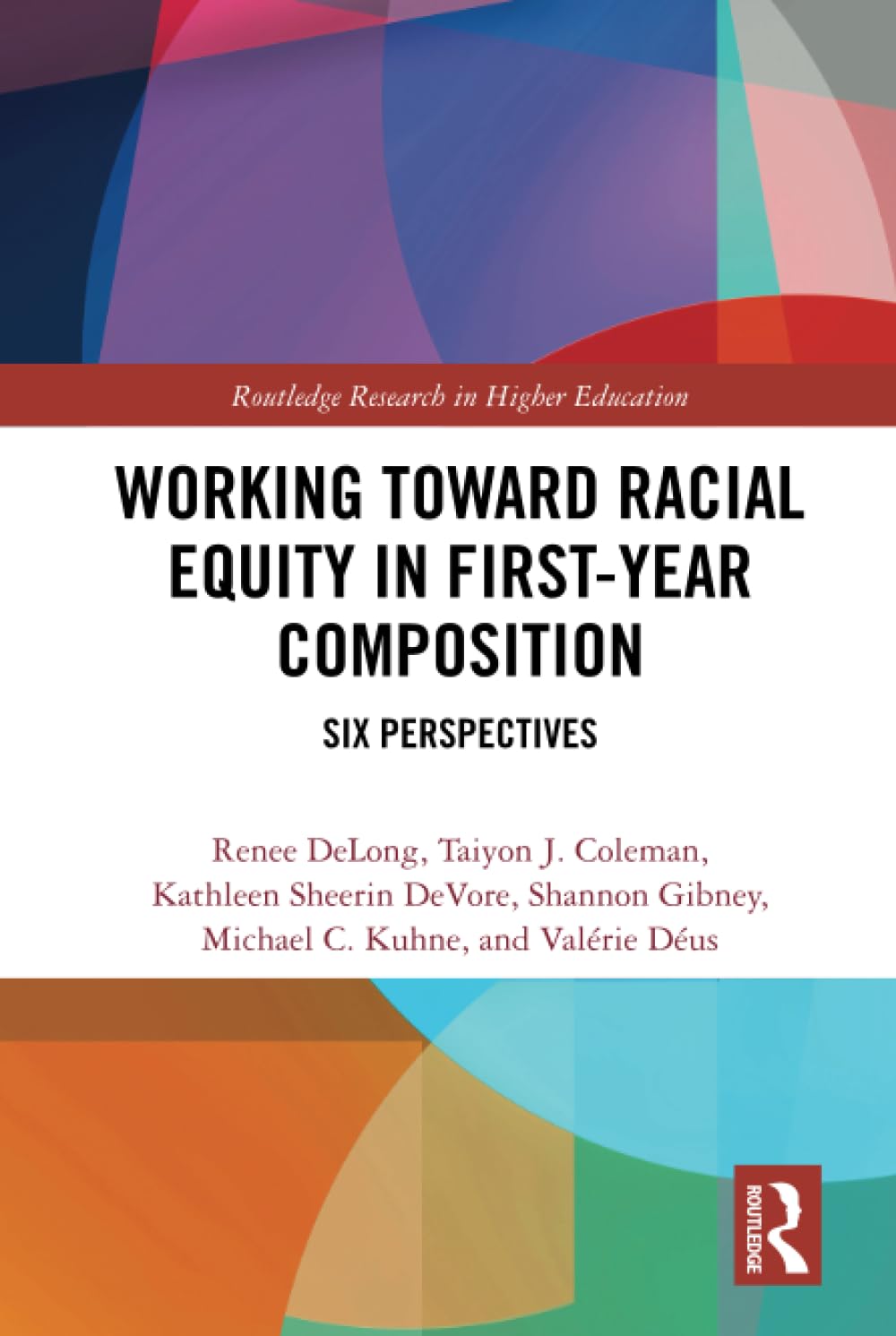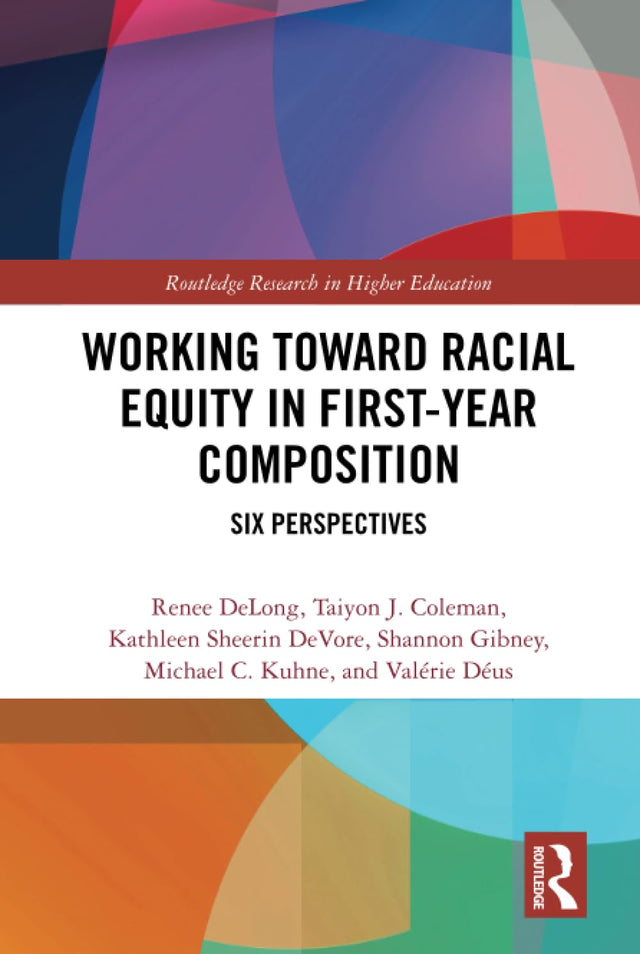Working Toward Racial Equity in First-Year Composition: Six Perspectives (Routledge Research in Higher Education)
Working Toward Racial Equity in First-Year Composition: Six Perspectives (Routledge Research in Higher Education) is backordered and will ship as soon as it is back in stock.
Couldn't load pickup availability
Genuine Products Guarantee
Genuine Products Guarantee
We guarantee 100% genuine products, and if proven otherwise, we will compensate you with 10 times the product's cost.
Delivery and Shipping
Delivery and Shipping
Products are generally ready for dispatch within 1 day and typically reach you in 3 to 5 days.
Book Details
-
Author: Renee DeLong
-
Publisher: Routledge
-
Language: English
-
Edition: 1st
-
ISBN: 9781138597211
-
Pages: 156
-
Cover: Hardcover
-
Dimensions: 9.0 x 6.2 x 0.6 inches
-
Weight: Not specified
About the Book
Equity and Writing Instruction: Toward an Inclusive Pedagogy in Two-Year Colleges by Renee DeLong is a bold and much-needed interrogation of how white institutional norms, pedagogical practices, and curricular structures influence writing education—especially within the context of urban community colleges in the United States.
This volume brings together a diverse range of voices, perspectives, and disciplines to examine the systemic inequities embedded in writing instruction at historically white-dominated institutions. The contributors explore how these dynamics play out across multiple levels: inside classrooms, during curriculum design and faculty hiring, and in broader institutional equity initiatives.
Key features of the book include:
-
A critical examination of heteronormativity and whiteness in writing pedagogy
-
Real-world insights from educators navigating the challenges of equity and inclusion in community college settings
-
Practical implications for reshaping curricular content, pedagogical methods, and institutional culture
-
A foundational belief that equity is central to student success and transformative learning
Written in a reflective and accessible style, this book is especially valuable for writing instructors, educational policy-makers, faculty developers, curriculum planners, and all those committed to fostering inclusive and equitable educational environments.
This is not only a scholarly contribution but also a call to action—aiming to reshape how writing is taught and experienced in some of the most diverse and underserved classrooms in the country.







